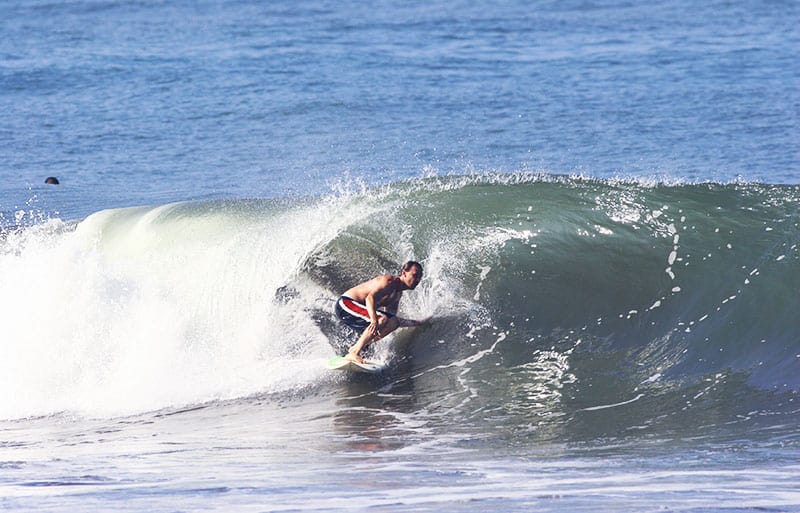A group of workers, members of the Association of Surf Instructors of Playa Tamarindo (AISPT), have issued a complaint, claiming that foreigners without proper permits are working as surf instructors. They have urged the (MTSS) and the Directorate General of Immigration to take appropriate measures in response to the situation.
According to the workers, in recent months, Playa Tamarindo has seen the emergence of groups of non-residents who are illegally working in Costa Rica as surfing instructors, without permits from the Ministry of Labor.
The AISPT reports that in this popular tourist center in the province of Guanacaste, there are approximately 50 individuals, both national and foreign, offering surfing lessons. This activity has a ripple effect, creating around 150 indirect employment opportunities in sectors such as transportation, food, lodging, and stores selling surfing-related items.
The influx of individuals with irregular migratory status into the local surfing market has led to a decrease of more than 50 percent in the cost of surfing lessons, which typically amount to $75 for a two-hour session. However, the AISPT has observed instances where the arrival of foreigners without proper migratory and labor documentation has further reduced this cost to as low as $30, including additional perks such as meals.
The regulations of the Ministry of Labor stipulate that foreign residents can work legally if they possess a residence card free of condition, a work permit, or legal refugee or asylum status. Any foreigner seeking paid work in Costa Rica must first apply for a migratory category permitting such employment, whether through temporary residence or a special work permit.
According to AISPT data, surf schools that have been duly legalized before authorities such as the Ministry of Labor, the Ministry of Finance, or the Costa Rican Social Security Fund operate within the town of Santa Cruz’s canton. These establishments not only provide lessons but also offer essential items for surfing, such as boards, waxes, and clothing, contributing to the surfing’s popularity in the region.
The Association emphasizes the importance of preventing unfair competition to ensure a level playing field for all economic actors in the surfing education sector. They stress the necessity for all individuals and companies involved in teaching surfing to adhere to the same regulations, advocating against xenophobic attitudes. Compliance with existing legislation is essential for all parties participating in this market.






